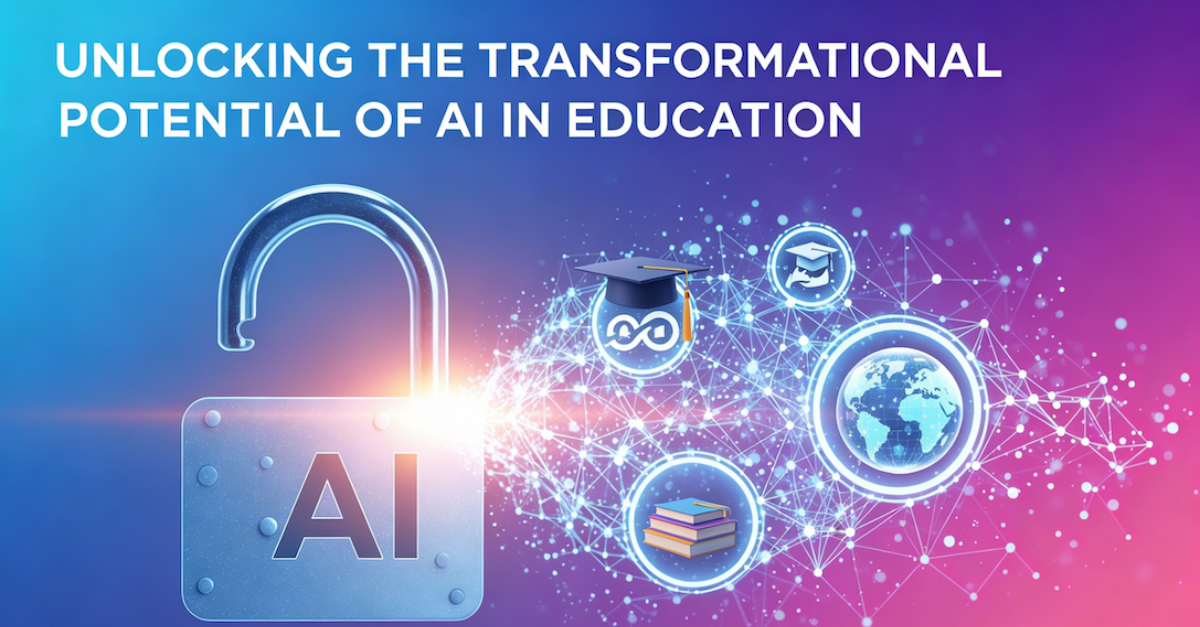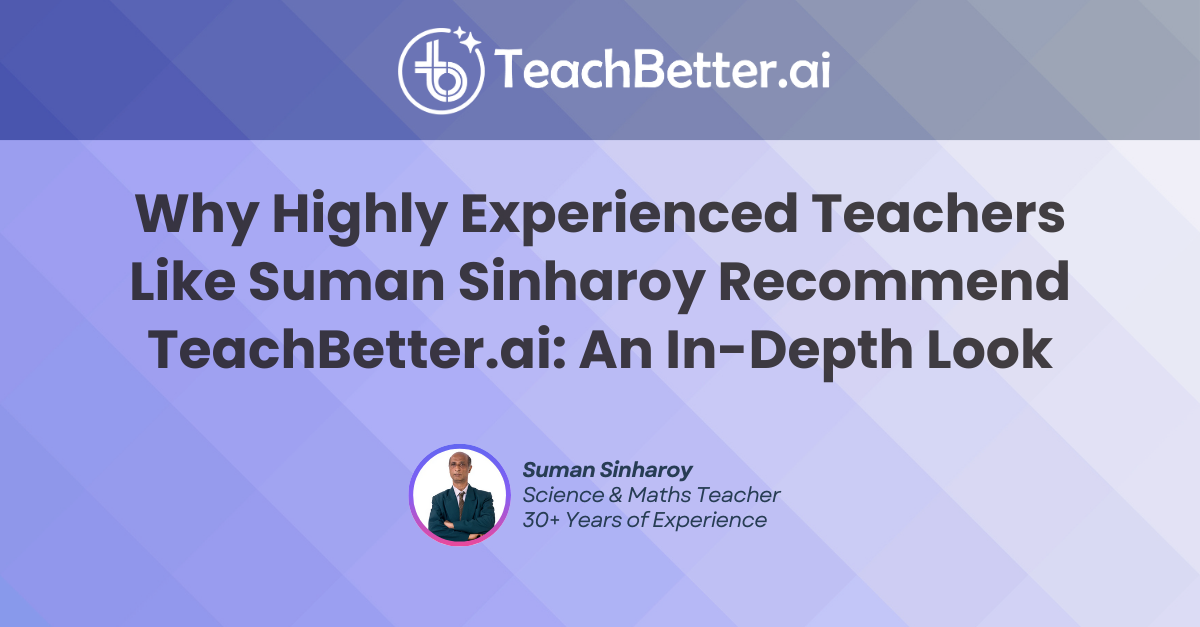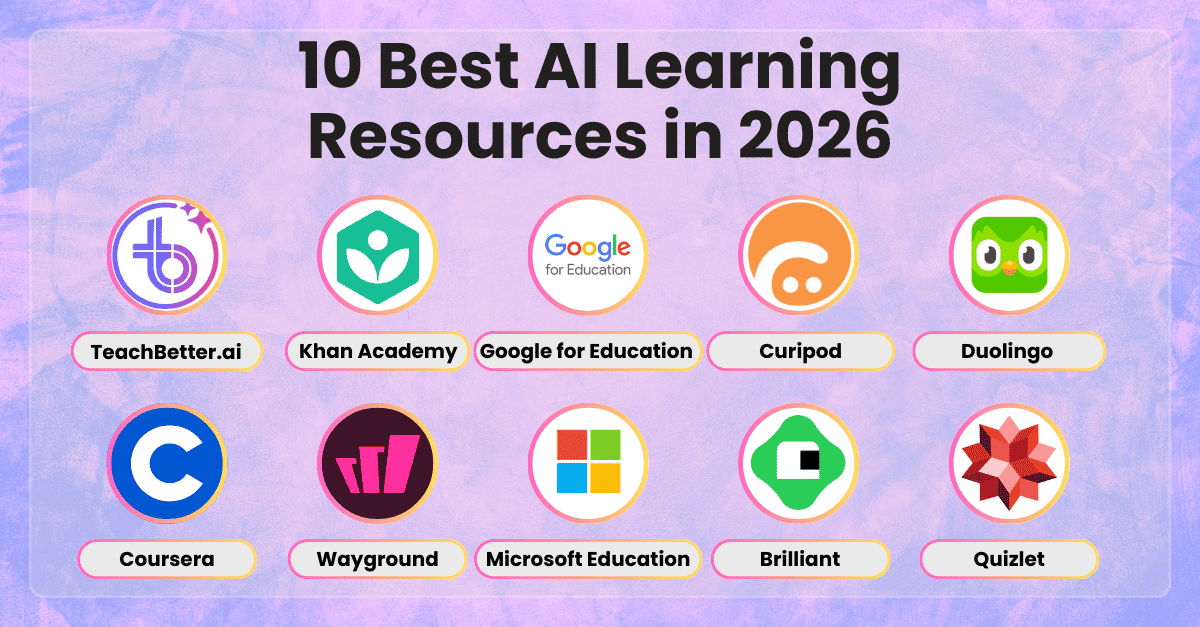The Knowledge Hub
CBSE vs ICSE vs IB vs IGCSE Boards: A Crisp Comparison
TeachBetter.ai
|
2 February, 2025

Choosing the right educational board is one of the most critical decisions for parents, students, and educators. With various options available, each curriculum offers unique advantages tailored to different learning styles, career aspirations, and personal preferences. In this blog, we will explore the key differences between CBSE, ICSE, IB, and IGCSE boards, giving you a comprehensive understanding of each. Additionally, we’ll highlight how AI-powered solutions are shaping the future of education across these curricula.
Understanding the Landscape: Key Highlights of Each Board
The four prominent educational boards—CBSE, ICSE, IB, and IGCSE—cater to diverse educational needs. Below is a concise comparison of these boards across multiple parameters to help parents and students make an informed choice:
| Aspect | CBSE (Central Board of Secondary Education) | ICSE (Indian Certificate of Secondary Education) | IB (International Baccalaureate) | IGCSE (International General Certificate of Secondary Education) |
| Governing Body | Government of India | CISCE | IBO, Geneva | CAIE, UK |
| Curriculum Focus | Structured, exam-centric, Science and Math emphasis | Balanced with a focus on arts, sciences, and languages | Holistic, interdisciplinary, global perspectives | Flexible, application-based, global outlook |
| Assessment Methods | Exam-heavy, theory-driven | Mix of theory and practicals | Continuous assessments, essays, projects | Balanced written and oral assessments |
| Subject Choices | Moderate flexibility | Diverse subjects | Six groups with customizable combinations | Over 70 subjects, tailored to strengths |
| Popularity by Region | Predominantly India | Mostly India | Global, with Indian presence | Global, with strong presence in India |
| Cost | Affordable, government-subsidized | Moderate | High | Moderate to high |
Each of these boards caters to specific educational objectives. While CBSE focuses on preparing students for national competitive exams, ICSE balances theoretical knowledge with practical skills. IB and IGCSE, on the other hand, emphasize holistic development and global competence, making them ideal for students aiming for international exposure.
Key Differences Between CBSE, ICSE, IB, and IGCSE
- Curriculum Design
- CBSE emphasizes structured, syllabus-driven education, often tailored for entrance exams like JEE and NEET.
- ICSE adopts an integrated approach, balancing languages, arts, and sciences.
- IB’s inquiry-driven framework promotes independent research, critical thinking, and global awareness.
- IGCSE offers unparalleled subject diversity, encouraging practical learning and interdisciplinary exploration.
- Assessment and Evaluation
- CBSE relies on theoretical exams with defined marking schemes.
- ICSE incorporates project work and internal assessments alongside exams.
- IB assesses through essays, case studies, and presentations, fostering deeper learning.
- IGCSE balances theory with oral and practical evaluations, aligning with international standards.
- Global Recognition
- CBSE is widely recognized within India but has limited global reach.
- ICSE is accepted by many universities abroad, thanks to its strong foundation in English.
- IB and IGCSE are globally recognized, opening doors to universities worldwide.
- Cost and Accessibility
- CBSE schools are affordable and accessible across urban and rural India.
- ICSE schools, while more expensive, cater to urban regions.
- IB and IGCSE schools, with higher fees, primarily serve urban, affluent demographics.
Why Choosing the Right Board Matters
Selecting the right curriculum is not just about academics; it shapes a child’s personality, critical thinking skills, and career trajectory. CBSE and ICSE offer strong foundational learning with a focus on theoretical knowledge, while IB and IGCSE develop global competencies and critical thinking skills. Understanding the nuances of these boards can help parents align their child’s education with long-term goals.
Common AI Use Cases Across All Boards
Artificial Intelligence (AI) is revolutionizing education, enabling personalized, efficient, and engaging learning experiences. Regardless of the board, AI tools can significantly benefit students and educators. Here are some common AI use cases:
- Personalized Learning Paths
AI can identify individual learning gaps and create customized plans tailored to each student’s pace and preferences, ensuring better comprehension and retention. - Automated Assessments
AI-powered tools can instantly grade assignments and provide feedback, saving teachers’ time and offering students actionable insights. - Conceptual Clarity with Visualization
For subjects like Science and Math, AI tools can generate interactive visuals and simulations, making complex concepts easier to understand. - Language Support and Translation
Multilingual AI tools assist in translating educational content, bridging language barriers for students across regions. - Enhanced Lesson Planning for Teachers
AI platforms can suggest resources, creative teaching ideas, and curriculum-aligned lesson plans, reducing teachers’ workload. - Data-Driven Insights
AI can analyze student performance data to identify trends, strengths, and areas for improvement, enabling data-driven decision-making.
TeachBetter.AI: Supporting Teachers Across All Boards
At TeachBetter.AI, we are building an AI-powered platform designed to empower educators across CBSE, ICSE, IB, and IGCSE boards. Our tools simplify lesson planning, personalize assessments, and enable creative teaching approaches, allowing teachers to focus on inspiring students. By integrating cutting-edge AI technologies, we aim to transform classrooms for a better tomorrow.
This comprehensive guide to CBSE, ICSE, IB, and IGCSE boards highlights their unique strengths while showcasing the transformative role AI can play in education. Whether you're a parent, student, or educator, understanding these distinctions and advancements can help you make informed decisions for the future of learning. Stay tuned for more insights on education and innovation at TeachBetter.AI!
To stay updated on our latest developments, follow us on LinkedIn: https://www.linkedin.com/company/teachbetter/


